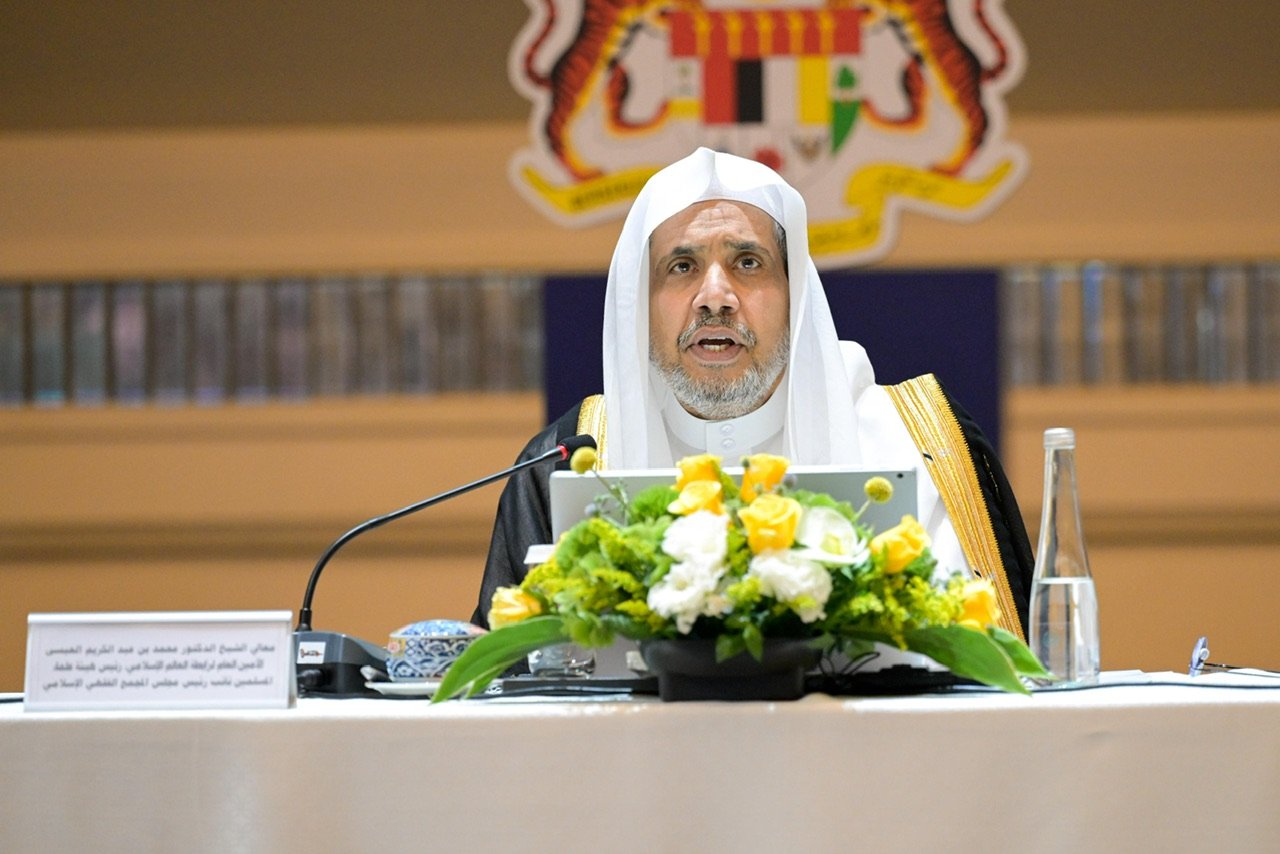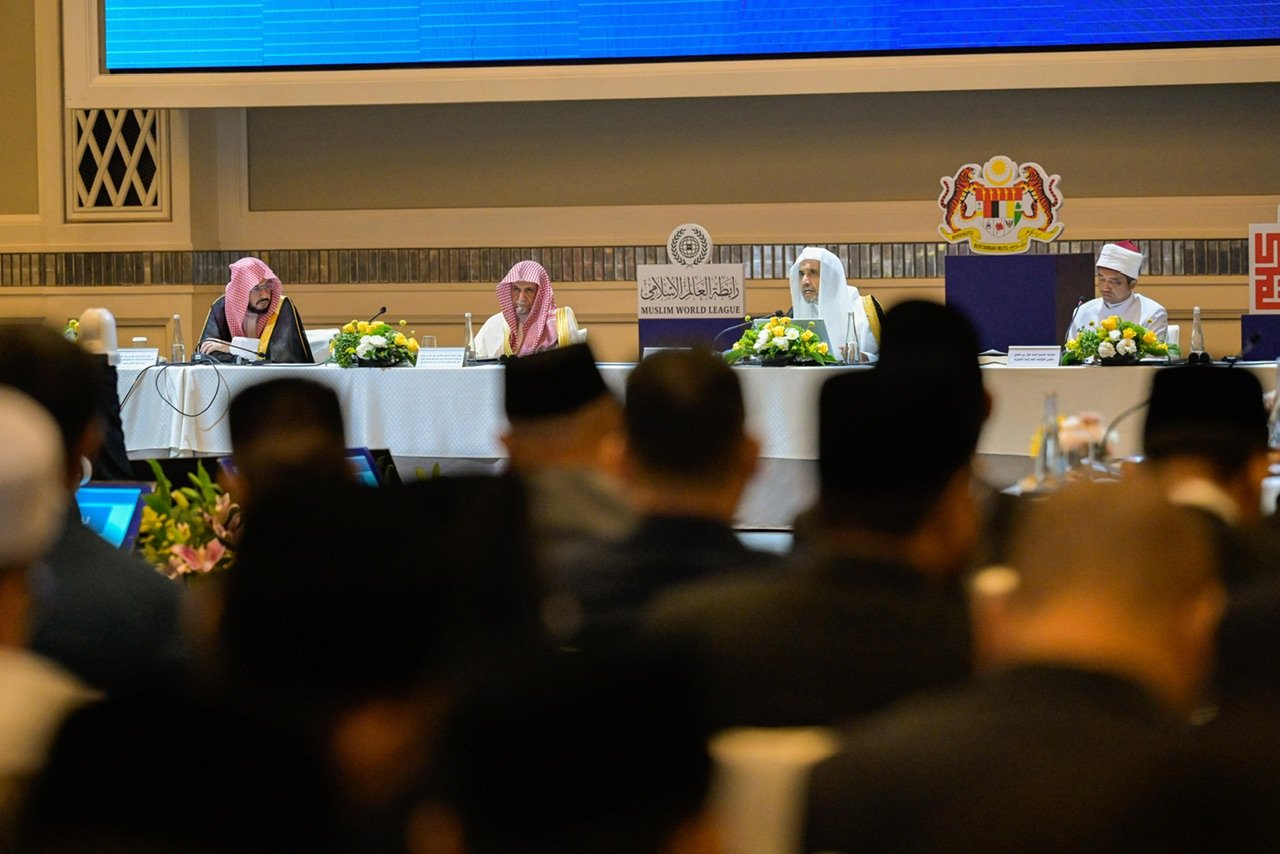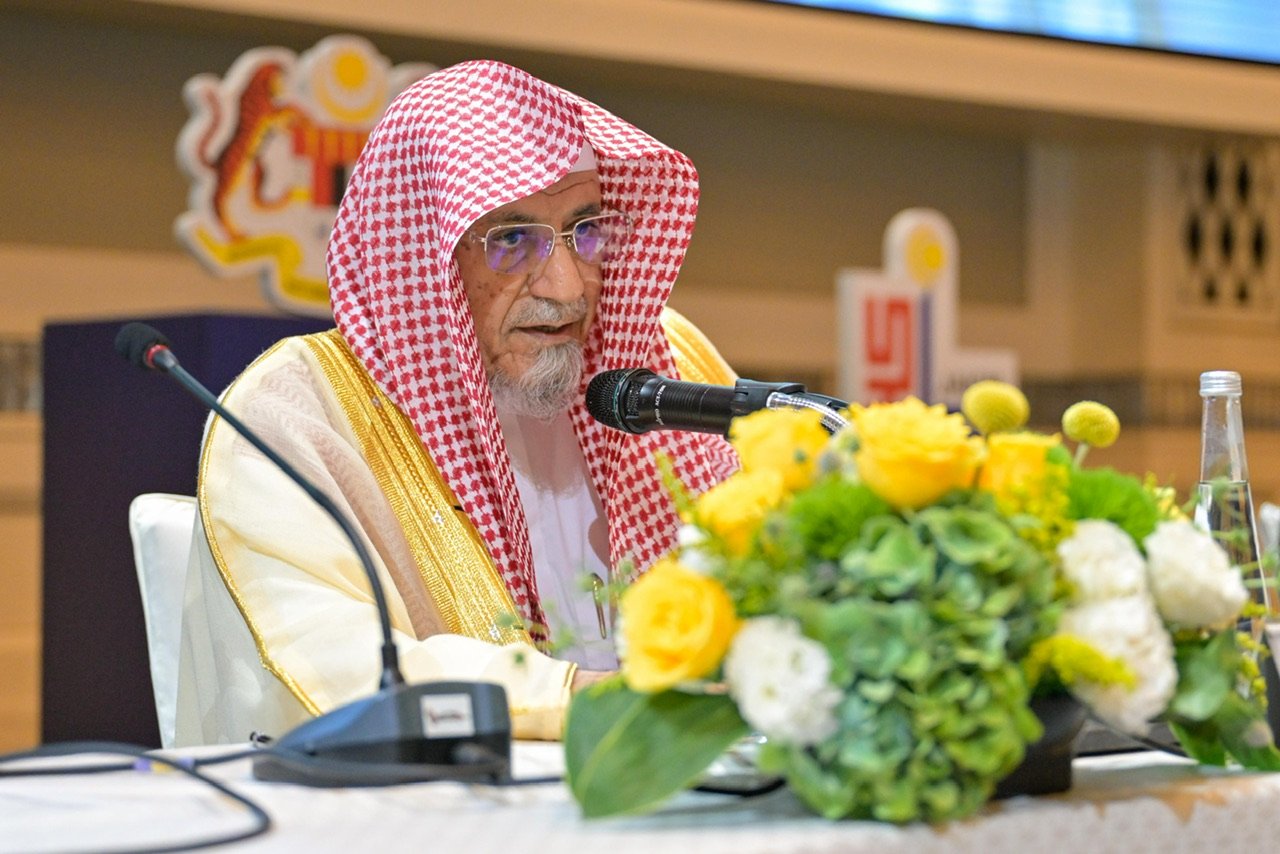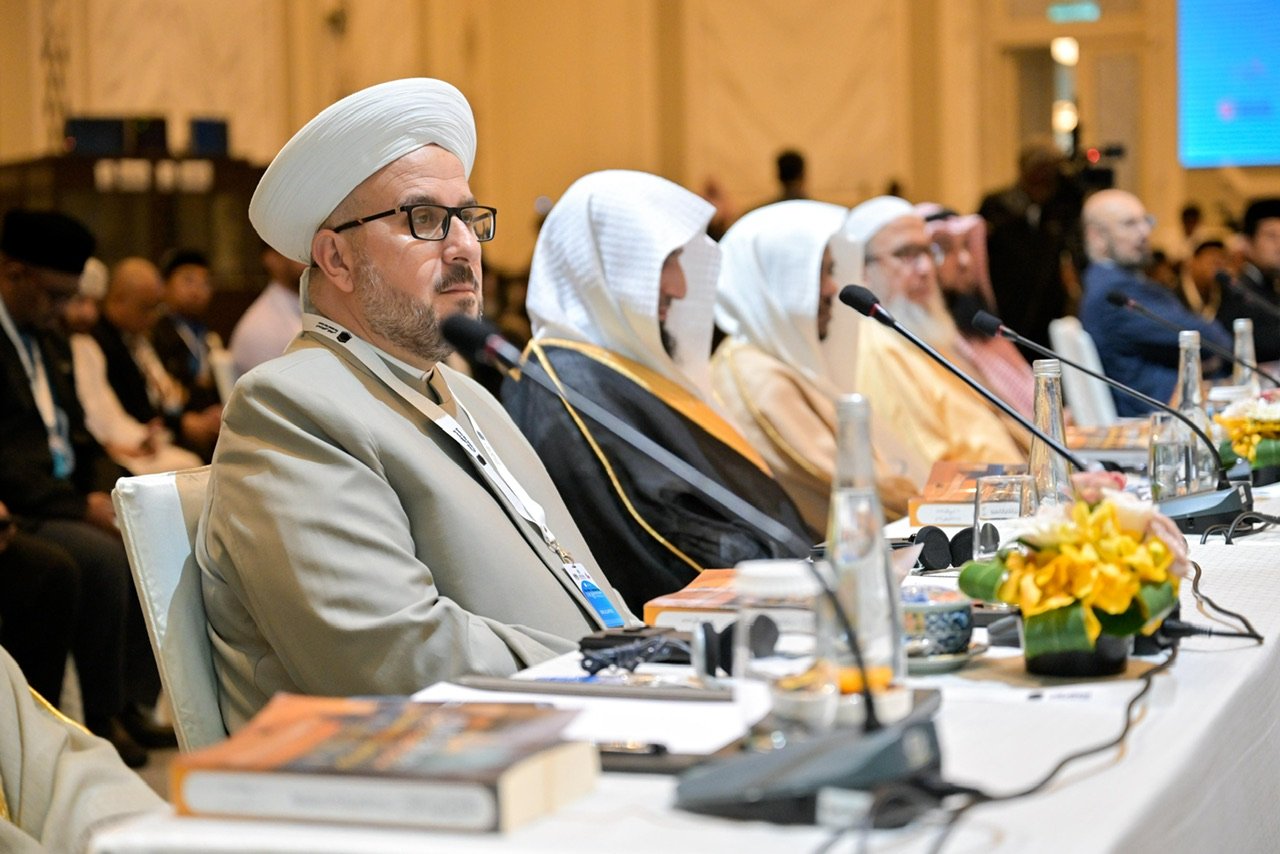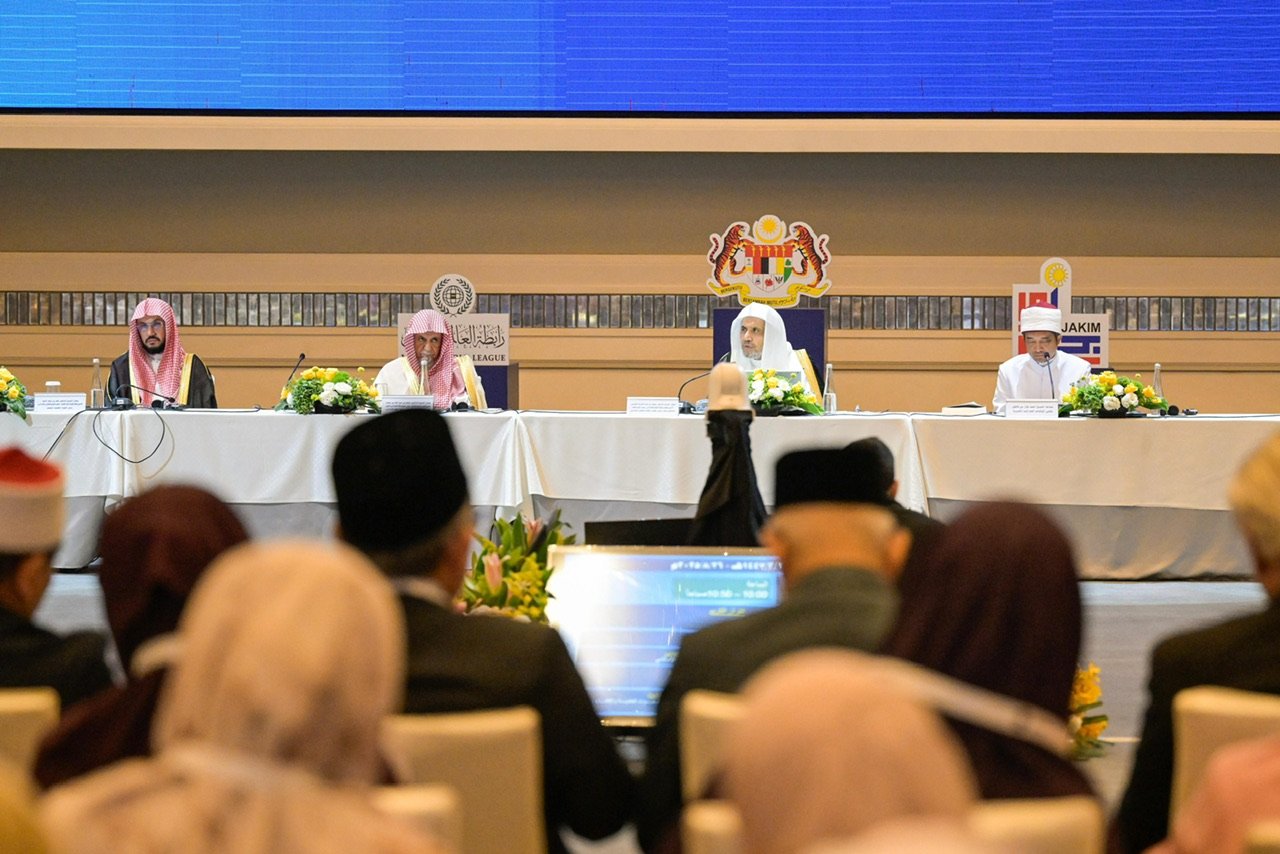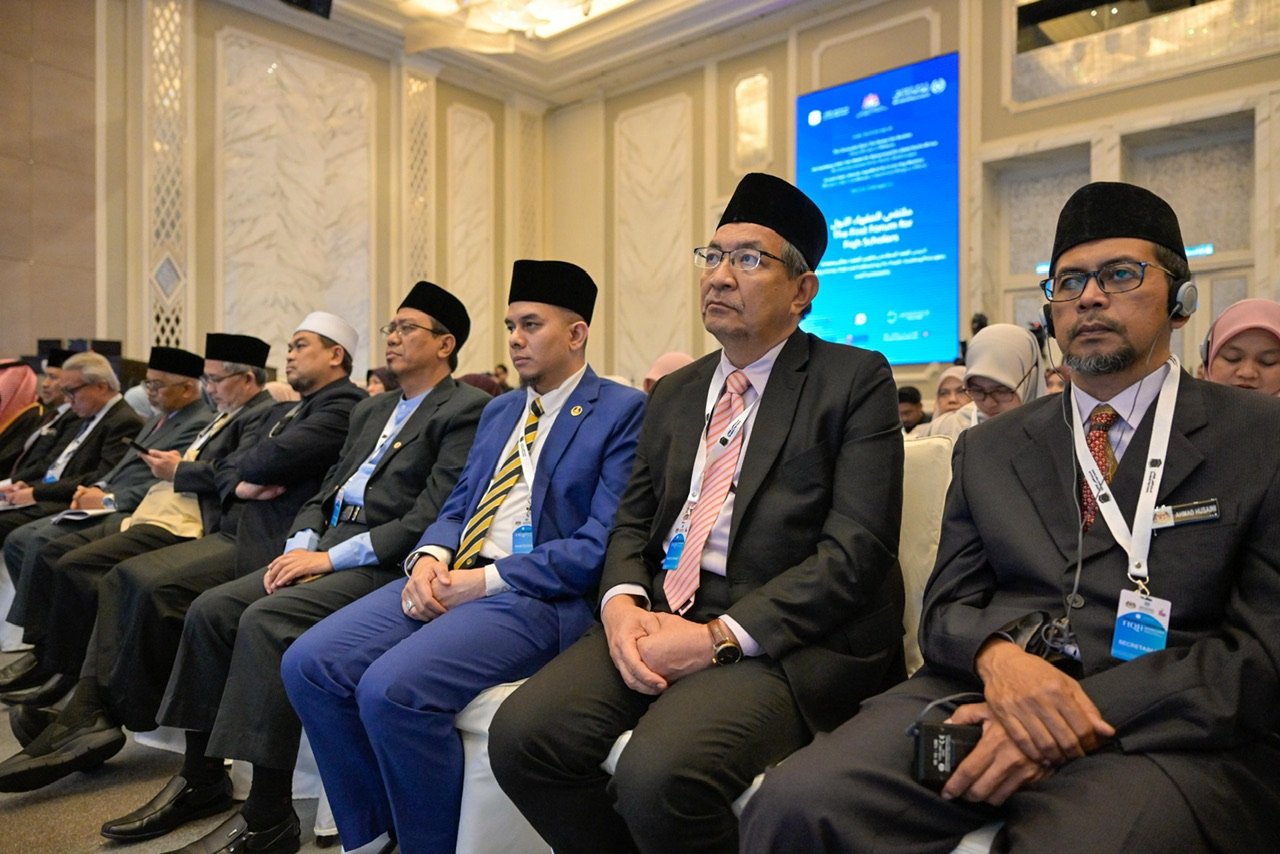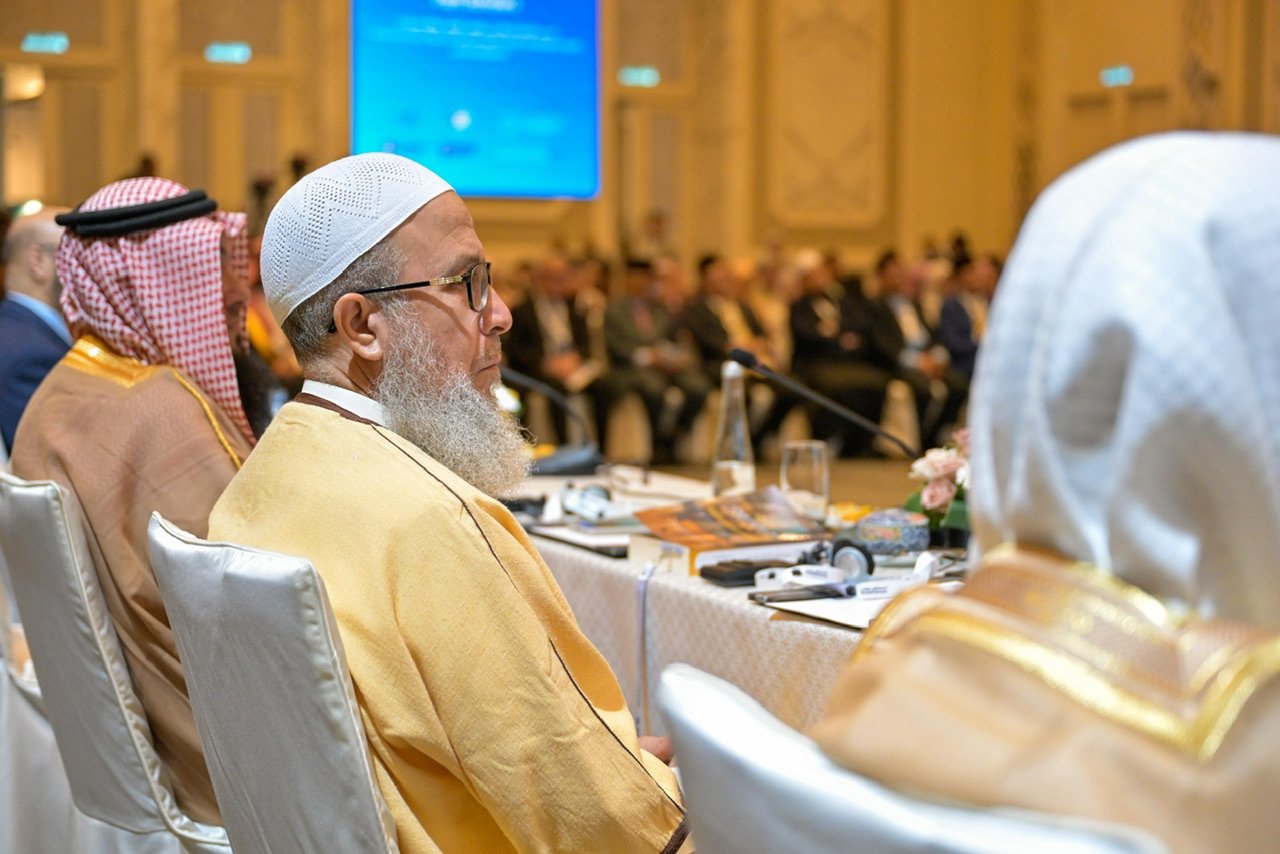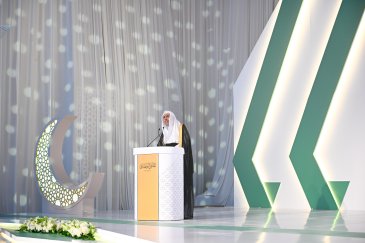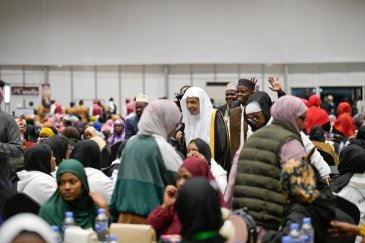As part of the First Forum for Fiqh Scholars: “Teaching Islamic Fiqh and Cultivating the Faqih: Guiding Principles and Frameworks,” prominent fiqh scholars of the Ummah convene in Malaysia under the umbrella of the Islamic Fiqh Council
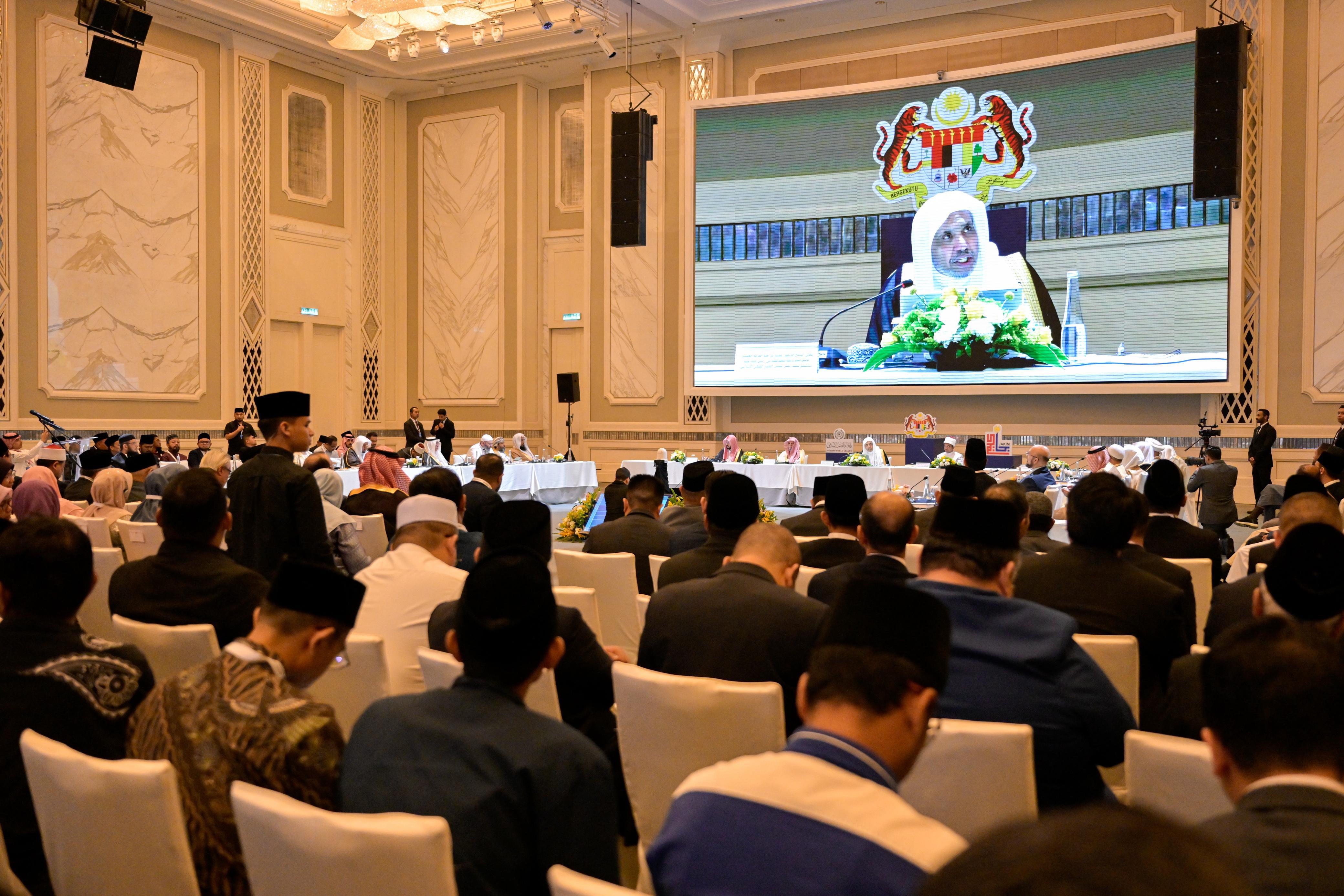
As part of the First Forum for Fiqh Scholars: “Teaching Islamic Fiqh and Cultivating the Faqih: Guiding Principles and Frameworks,” prominent fiqh scholars of the Ummah convene in Malaysia under the umbrella of the Islamic Fiqh Council, affiliated with the Muslim World League.
The Grand Mufti of Saudi Arabia stated: “I hope that the forum will produce studies and recommendations aimed at making this vast fiqh content more accessible to students of Islamic fiqh, in addition to reviewing the curricula of Islamic universities and assessing their effectiveness in preparing fiqh scholars capable of addressing new issues and contemporary challenges.”
Dr. Al-Issa: “The diversity of Fiqh schools is a source of scholarly enrichment that highlights the breadth and flexibility of Sharia. Prominent fiqh scholars of the Ummah have contributed to strengthening its unity.”
Saleh bin Humaid: “Fiqh is not a set of rigid rulings; it is a living science that evolves with time.”
Mufti of the Federal States of Malaysia: “Contemporary life, with its technological and social advancements, has produced new Sharia issues that did not exist in earlier times.”
Kuala Lumpur:
The First Forum for Fiqh Scholars was inaugurated in Kuala Lumpur by H.E. Sheikh Dr. Mohammed bin Abdulkarim Al-Issa, Secretary-General of the Muslim World League (MWL) and Chairman of the Organization of Muslim Scholars. The forum, entitled “Teaching Islamic Fiqh and Cultivating the Faqih: Guiding Principles and Frameworks,” was organized by the Islamic Fiqh Council affiliated with the MWL, under the patronage of H.E. the Prime Minister of Malaysia, Dato’ Sri Anwar bin Ibrahim. It was attended by H.E. Sheikh Dr. Saleh bin Humaid, Imam and Khatib of the Grand Mosque and President of the International Islamic Fiqh Academy affiliated with the Organization of Islamic Cooperation; H.E. Sheikh Ahmad Fawaz bin Fadel, Mufti of the Federal States of Malaysia; and the Secretary-General of the Council of Senior Scholars in Saudi Arabia, who delivered the speech of H.E. Sheikh Abdulaziz bin Abdullah Al Al-Sheikh, Grand Mufti of Saudi Arabia, Chairman of the Council of Senior Scholars, and President of the Islamic Fiqh Council, while also participating in the forum’s sessions, along with a number of prominent muftis and Fiqh scholars from the Islamic world and countries with Muslim minorities.
The Secretary-General of the Council of Senior Scholars, Member of the Islamic Fiqh Council, and Chairman of its Sharia Committee, Sheikh Dr. Fahd bin Saad Al-Majid, explained in his speech delivered on behalf of the Grand Mufti of Saudi Arabia, that Fiqh is a precise science related to a specific discipline, noting that the Islamic library today is enriched with Fiqh contributions rarely matched.
The Grand Mufti expressed his aspiration that the forum would produce studies and recommendations aimed at making this vast Fiqh content more accessible to students of Fiqh, in addition to reviewing the curricula of Fiqh teaching in the universities of the Islamic world and assessing their effectiveness in preparing scholars capable of research, reasoning, and addressing issues and new developments.
He also expressed his gratitude to the Islamic Fiqh Council, which operates within the institutions of the MWL — a League that originated in the Kingdom of Saudi Arabia and was presented to the Islamic world to help unify its voice, strengthen bonds of fraternity among Muslims, and address contemporary Fiqh challenges with sound scholarly reasoning through this distinguished council.
H.E. Sheikh Mohammed bin Abdulkarim Al-Issa, Secretary-General of the Muslim World League, welcomed the participants of this blessed forum, affirming that Fiqh, throughout its rich history, has been and continues to be the legitimate reference for subsidiary practical rulings derived from detailed evidences, guiding Muslims in their religion in accordance with the light of Sharia.
He explained that the Fiqh scholars of the Ummah contributed to strengthening the unity of the Islamic Ummah by reinforcing scholarly and ethical ties among the schools of Fiqh. This stemmed from their sincere intentions, openness of heart, purity of spirit, and solid knowledge. The field of knowledge was vast with their presence and enriched by the noble ethics of Islam. This diversity of schools became a source of scholarly enrichment, highlighting the breadth and flexibility of our noble Sharia and its complete harmony across different times, places, and circumstances.
He stressed that none found difficulty with this diversity and its scholarly breadth except those limited in knowledge, vision, and capacity. He warned against the danger of those who memorize texts without comprehending their meanings or lofty ethics, failing to realize that Allah’s grace is vast, His Sharia is pure and tolerant, and that winning the hearts of their brothers — by weighing benefits and harms — could be better for them in their religion and worldly life than an ijtihad in which they happened to be correct.
He further emphasized the necessity of embracing Fiqh ijtihads and building bridges between the Islamic schools through dialogue, understanding, and mutual respect. He affirmed that the scholars of the Ummah, in their diversity of ijtihads, are building blocks of a single structure that increases in beauty through its diversity and complementarity.
He concluded by saying: “In this blessed gathering, a preparatory committee assumed full responsibility and produced this comprehensive volume enriched with in-depth and meticulous research on teaching Fiqh and cultivating the faqih, within important guiding principles and frameworks. May Allah grant them the greatest reward.”
For his part, Sheikh Dr. Saleh bin Abdullah bin Humaid, Imam and Khatib of the Grand Mosque, President of the International Islamic Fiqh Academy, and Member of the Islamic Fiqh Council of the MWL, affirmed that Fiqh is not a set of rigid rulings but a living field of knowledge that evolves with time, derived from the Qur’an and Sunnah, attentive to changing realities, while preserving its fundamental constants.
He explained that developing Fiqh studies means bringing closer the scale of ijtihad in its tools and standards, benefitting from the sources of Fiqh and the contributions of both past and contemporary scholars, and mastering the language and terminology of Fiqh in order to comprehend its fundamentals and branches as well as address emerging issues without contravening the Sharia, its foundations, or its sources. He pointed out that cultivating the faqih requires building a balanced scholarly personality that combines Sharia depth with contemporary awareness. He added that such development rests on firm foundations, foremost among them going back to the essential Sharia sources of the Qur’an, the Sunnah, consensus, qiyas, and other proofs, in addition to observing the objectives of Sharia and those of the people.
For his part, Sheikh Ahmad Fawaz Fadel, Mufti of the Federal States of Malaysia, affirmed the importance of collective ijtihad in light of the rapid developments and complex transformations across various aspects of life. He explained that contemporary life, with its technological and social advancements, has produced new issues that did not exist in earlier times, which necessitates precise and systematic mechanisms to ensure that rulings are derived in accordance with the objectives of Sharia and in a way that preserves the interests of the Ummah.
The forum discussed important emerging issues in teaching Fiqh, reviewing essential guiding principles and frameworks for cultivating the contemporary faqih.
At the conclusion of its sessions, the forum issued a Final Statement in which participants commended the pioneering role of Fiqh councils in providing a modern model for organizing scholarly consensus by regulating the course of collective ijtihad and entrusting it to an elite group of scholars who have broad knowledge of Fiqh with practical experience and mastery of the tools and principles of reasoning and deduction. The Final Statement also included a set of recommendations aimed at regulating and advancing the path of Fiqh studies, cultivating Fiqh scholars, and addressing contemporary Fiqh challenges.
Participants thanked the Prime Minister’s Office of Malaysia for its patronage, and expressed their appreciation to the Muslim World League for its efforts in making the Fiqh Scholars Forum a success. They further called for transforming the forum into a regular event to be held in various Islamic countries, in order to deepen ties among Fiqh scholars and facilitate their discussions on scholarly and religious matters.
